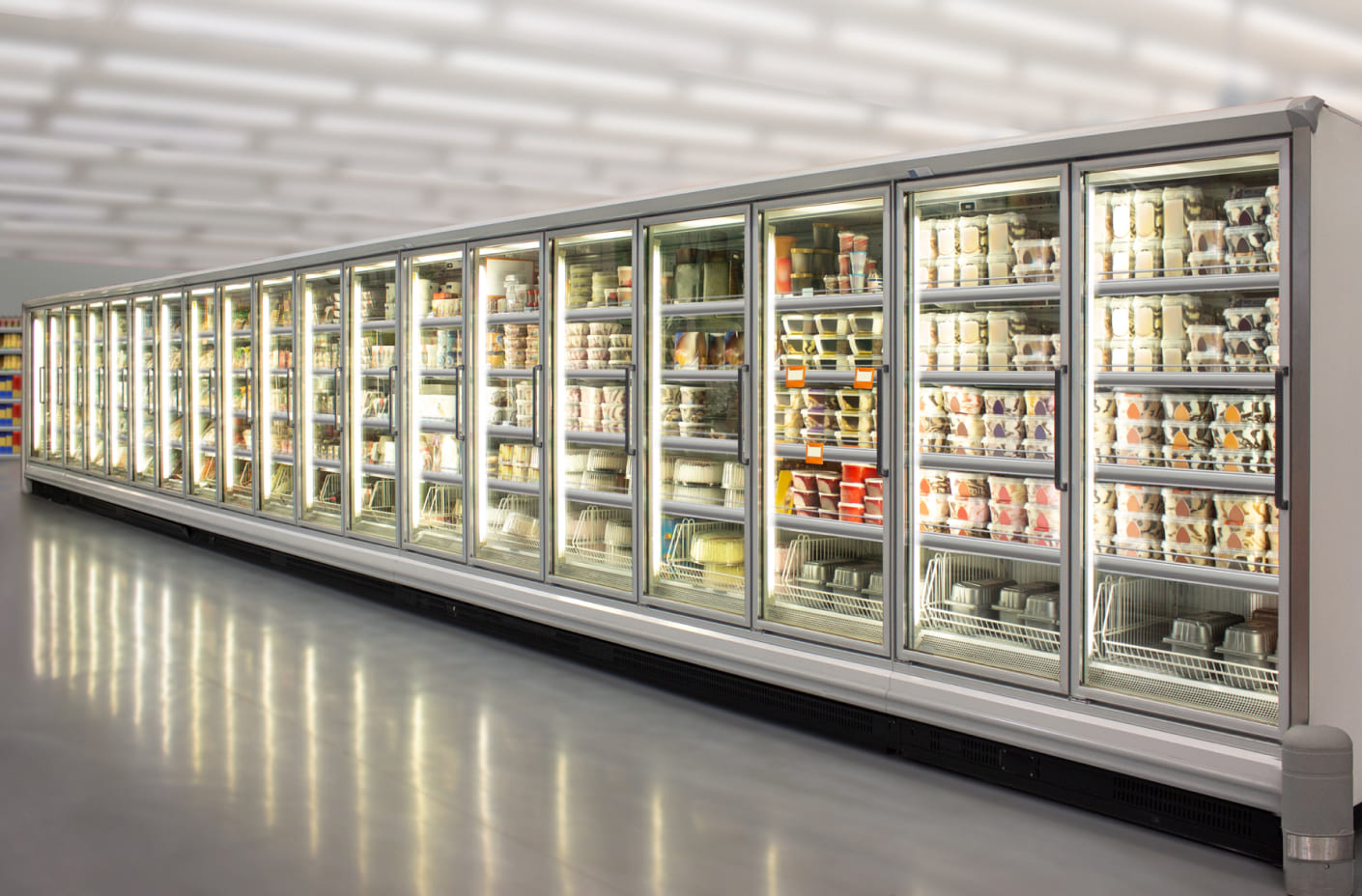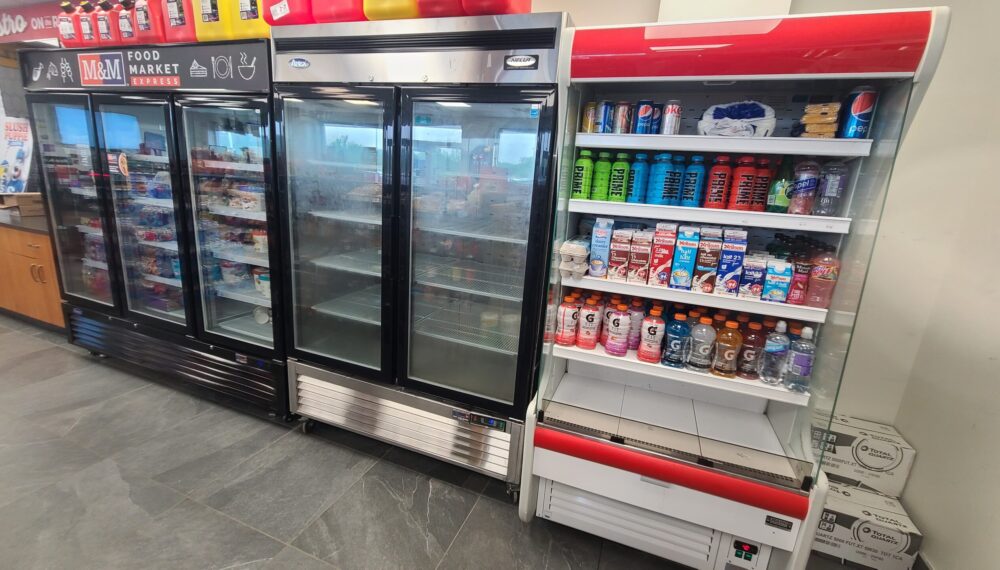Making Best Use Of Efficiency: Commercial Refrigeration Repair Service Techniques for Cost-Effective Solutions

Assessing Refrigeration System Efficiency
To effectively assess the efficiency of a business refrigeration system, it is essential to carry out comprehensive evaluations of its operational parameters and key parts. The initial step in evaluating system performance is analyzing the capability of the compressor.
Checking cooling agent degrees and stress is also vital in assessing system performance. Low refrigerant levels or irregular pressures can show leakages or malfunctioning components that require instant attention to avoid system failures and expensive repairs. By methodically evaluating these functional specifications and key elements, companies can guarantee their business refrigeration systems operate at peak performance degrees, minimizing downtime and optimizing energy efficiency.

Applying Preventative Maintenance Actions
Analyzing the efficiency of a business refrigeration system offers beneficial understandings that can inform the execution of preventative maintenance measures crucial for sustaining ideal performance and durability. Preventative upkeep is a positive technique targeted at recognizing and resolving potential problems before they intensify into expensive issues that interfere with operations. By establishing a normal upkeep timetable, refrigeration systems can operate effectively, lowering power intake and decreasing the risk of unexpected breakdowns. Key preventative maintenance procedures include evaluating and cleaning up condenser coils, examining cooling agent levels, making sure appropriate airflow, and adjusting temperature controls. In addition, keeping an eye on temperature and moisture degrees, checking door seals, and addressing any type of uncommon noises or odors promptly are important steps in preventative upkeep. Implementing these procedures not only prolongs the life expectancy of the devices yet also enhances food safety and security by preserving constant storage space temperatures. Ultimately, purchasing preventative upkeep measures is a cost-effective method that aids companies prevent pricey repair work and downtime, making certain continual and trustworthy refrigeration system performance.
Identifying Common Refrigeration Issues
Among the vital facets in keeping business refrigeration systems is immediately identifying common concerns that might emerge throughout their operation. One common issue is poor cooling, often triggered by dirty condenser coils or a malfunctioning compressor. Normal cleaning of the condenser coils and ensuring correct ventilation around the system can help prevent this concern. An additional typical problem is refrigerant leakages, which can lead to inefficient air conditioning and possible environmental hazards. Checking refrigerant levels and conducting normal examinations for leaks can aid alleviate this problem. Additionally, defective gaskets on doors, leading to air leaks, can trigger the refrigeration system to function more challenging to keep the wanted temperature. Routine assessment and replacement of damaged gaskets are vital to avoid power waste. Last but not least, unusual sounds such as banging, clanking, or hissing could suggest underlying mechanical issues that call for instant interest to stop more damages. By immediately determining and addressing these usual refrigeration concerns, services can make sure the effective operation of their systems and lessen pricey repairs.
Using Energy-Efficient Fixing Techniques
When thinking about industrial refrigeration fixing, applying energy-efficient techniques is vital to optimizing the system's efficiency and reducing operational expenses. Among the vital techniques in accomplishing energy effectiveness is guaranteeing that the refrigeration system is correctly maintained. Normal upkeep, such as cleaning up condenser coils, looking for cooling agent leaks, and calibrating temperature level setups, can considerably improve power performance.
Another energy-efficient repair service strategy is updating to high-efficiency components - commercial refrigeration repair. By replacing older, much less reliable parts with energy-efficient alternatives, such as ECM fan electric motors or LED illumination, businesses can decrease power intake and reduced energy costs. Additionally, mounting programmable thermostats and power monitoring systems can assist control temperature levels better, stopping unneeded energy use
Additionally, maximizing the system's insulation and securing any leaks can also add to power financial savings. Correct insulation aids keep regular temperature levels within the refrigeration device, reducing the work on the system and boosting total performance. By including these energy-efficient repair service strategies, organizations can not just minimize their ecological effect however additionally achieve long-term price savings.
Optimizing Refrigeration System Life Expectancy
To make sure the longevity and commercial refrigerator repair optimum performance of industrial refrigeration systems, keeping energy-efficient repair techniques is necessary, with an emphasis currently changing in the direction of taking full advantage of the refrigeration system lifespan. Maximizing the life expectancy of a refrigeration system entails proactive maintenance, timely repair services, and adherence to producer standards. Routine examinations to discover potential concerns prior to they rise can substantially extend the system's life expectancy (commercial refrigeration repair). Applying a preventative maintenance schedule that consists of tasks such as cleaning coils, examining refrigerant degrees, and evaluating insulation can aid determine troubles early and stop expensive malfunctions.
In addition, spending in high-grade components and components during repair work and substitutes can enhance the resilience of the refrigeration system. By prioritizing aggressive upkeep and making use of top quality parts, businesses can optimize the life-span of their industrial refrigeration systems, eventually decreasing downtime and functional expenses.
Final Thought
Finally, by frequently analyzing refrigeration system performance, implementing preventative maintenance actions, identifying common refrigeration problems, using energy-efficient repair strategies, and optimizing the system's lifespan, organizations can optimize performance and lower expenses related to commercial refrigeration repair. These affordable options assist to ensure that refrigeration systems operate at peak performance, inevitably resulting in enhanced efficiency and earnings for companies in the long run.

When taking into consideration industrial refrigeration fixing, implementing energy-efficient techniques is extremely important to maximizing the system's efficiency and decreasing operational expenses.To make sure the long life and optimum performance of business refrigeration systems, maintaining energy-efficient repair practices is necessary, with an emphasis currently changing in the direction of making the most of the refrigeration system lifespan. Optimizing the lifespan of a refrigeration system involves proactive maintenance, prompt repairs, and adherence to producer standards.